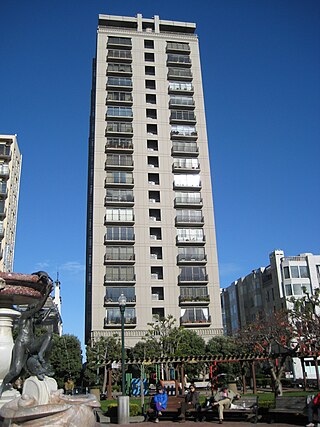Related Research Articles
A class action, also known as a class action lawsuit, class suit, or representative action, is a type of lawsuit where one of the parties is a group of people who are represented collectively by a member or members of that group. The class action originated in the United States and is still predominantly an American phenomenon, but Canada, as well as several European countries with civil law, have made changes in recent years to allow consumer organizations to bring claims on behalf of consumers.
A plaintiff is the party who initiates a lawsuit before a court. By doing so, the plaintiff seeks a legal remedy. If this search is successful, the court will issue judgment in favor of the plaintiff and make the appropriate court order. "Plaintiff" is the term used in civil cases in most English-speaking jurisdictions, the notable exceptions being England and Wales, where a plaintiff has, since the introduction of the Civil Procedure Rules in 1999, been known as a "claimant" and Scotland, where the party has always been known as the "pursuer". In criminal cases, the prosecutor brings the case against the defendant, but the key complaining party is often called the "complainant".
A county court is a court based in or with a jurisdiction covering one or more counties, which are administrative divisions within a country, not to be confused with the medieval system of county courts held by the high sheriff of each county.
A lawsuit is a proceeding by one or more parties against one or more parties in a civil court of law. The archaic term "suit in law" is found in only a small number of laws still in effect today. The term "lawsuit" is used with respect to a civil action brought by a plaintiff who requests a legal remedy or equitable remedy from a court. The defendant is required to respond to the plaintiff's complaint or else risk default judgment. If the plaintiff is successful, judgment is entered in favor of the plaintiff, and the Court may impose the legal and/or equitable remedies available against the defendant (respondent). A variety of court orders may be issued in connection with or as part of the judgment to enforce a right, award damages or restitution, or impose a temporary or permanent injunction to prevent an act or compel an act. A declaratory judgment may be issued to prevent future legal disputes.
The Courts of England and Wales, supported administratively by His Majesty's Courts and Tribunals Service, are the civil and criminal courts responsible for the administration of justice in England and Wales.

Eviction is the removal of a tenant from rental property by the landlord. In some jurisdictions it may also involve the removal of persons from premises that were foreclosed by a mortgagee.

A lease is a contractual arrangement calling for the user to pay the owner for the use of an asset. Property, buildings and vehicles are common assets that are leased. Industrial or business equipment are also leased. In essence, a lease agreement is a contract between two parties: the lessor and the lessee. The lessor is the legal owner of the asset, while the lessee obtains the right to use the asset in return for regular rental payments. The lessee also agrees to abide by various conditions regarding their use of the property or equipment. For example, a person leasing a car may agree to the condition that the car will only be used for personal use.

The Civil Rights Act of 1968 is a landmark law in the United States signed into law by United States President Lyndon B. Johnson during the King assassination riots.
Replevin or claim and delivery is a legal remedy which enables a person to recover personal property taken wrongfully or unlawfully, and to obtain compensation for resulting losses.
The Federal Rules of Civil Procedure govern civil procedure in United States district courts. They are the companion to the Federal Rules of Criminal Procedure. Rules promulgated by the United States Supreme Court pursuant to the Rules Enabling Act become part of the FRCP unless, within seven months, the United States Congress acts to veto them. The Court's modifications to the rules are usually based upon recommendations from the Judicial Conference of the United States, the federal judiciary's internal policy-making body.

A rent strike is a method of protest commonly employed against large landlords. In a rent strike, a group of tenants come together and agree to refuse to pay their rent en masse until a specific list of demands is met by the landlord. This can be a useful tactic of final resort for use against intransigent landlords, but carries the risk of eviction and lowered credit scores in some cases.
Landlord harassment is the willing creation, by a landlord or their agents, of conditions that are uncomfortable for one or more tenants in order to induce willing abandonment of a rental contract. This is illegal in many jurisdictions, either under general harassment laws or specific protections, as well as under the terms of rental contracts or tenancy agreements.
Bet Tzedek is an American nonprofit human and poverty rights organization based in Los Angeles, California.
An emotional support animal (ESA) is an animal that provides support to individuals with a mental health or psychiatric disability. Emotional support animals are not required to be trained. Any animal that provides support, comfort, or aid, to an individual through companionship, unconditional positive regard, and affection may be regarded as an emotional support animal.

Landlord–tenant law is the field of law that deals with the rights and duties of landlords and tenants.
"'Tenant screening'" is used primarily by residential landlords and property managers to evaluate prospective tenants. The purpose is to assess the likelihood the tenant will fulfill the terms of the lease or rental agreement and will also take great care of the rental property in question. The process culminates in a decision as to whether to approve the applicant, approve the applicant conditionally, or deny tenancy.
Soldal v. Cook County, 506 U.S. 56 (1992), was a United States Supreme Court case in which the Court held that a seizure of property like that which occurs during an eviction, even absent a search or an arrest, implicates the Fourth Amendment. The Court also held that the Amendment protects property as well as privacy interests, in both criminal as well as civil contexts. Finally, saying that "certain wrongs affect more than a single right", the Court left open the possibility that the Fourteenth Amendment's protections against deprivation of property without due process of law may also be implicated.

Eviction in the United States refers to the pattern of tenant removal by landlords in the United States. In an eviction process, landlords forcibly remove tenants from their place of residence and reclaim the property. Landlords may decide to evict tenants who have failed to pay rent, violated lease terms, or possess an expired lease. Landlords may also choose not to renew a tenant's lease, however, this does not constitute an eviction. In the United States, eviction procedures, landlord rights, and tenant protections vary by state and locality. Historically, the United States has seen changes in domestic eviction rates during periods of major socio-political and economic turmoil—including the Great Depression, the 2008 Recession, and the COVID-19 pandemic. High eviction rates are driven by affordable housing shortages and rising housing costs. Across the United States, low-income and disadvantaged neighborhoods have disproportionately higher eviction rates. Certain demographics—including low income renters, Black and Hispanic renters, women, and people with children—are also at a greater risk of eviction. Additionally, eviction filings remain on renters' public records. This can make it more difficult for renters to access future housing, since most landlords will not rent to a tenant with a history of eviction. Eviction and housing instability are also linked to many negative health and life outcomes, including homelessness, poverty, and poor mental and physical health.
TransUnion LLC v. Ramirez, 594 U.S. ___ (2021), was a United States Court case dealing with standing under Article III of the Constitution related to class-action suits against private defendants. In a 5–4 decision, the Court ruled that only those that can show concrete harm have standing to seek damages against private defendants.
A nuisance ordinance, also referred to as a crime-free ordinance or a disorderly house ordinance, is a local law usually passed on the town, city, or municipality level of government that aims to legally punish both landlords and tenants for crimes that occur on a property or in a neighborhood. These laws impose penalties under programs referred to as nuisance abatement when crimes are reported, regardless of whether crimes actually occurred or what the police action entailed. The result of these ordinances is for landlords to tell tenants to not report crimes, refuse to renew the lease of anyone involved in reporting a crime, and eviction of tenants involved in any crimes, even if the tenants were the victims of said crimes.
References
- ↑ "REGISTRY | English meaning - Cambridge Dictionary".
- ↑ "Definition of REGISTRY". www.merriam-webster.com. 2024-11-15. Retrieved 2024-11-17.